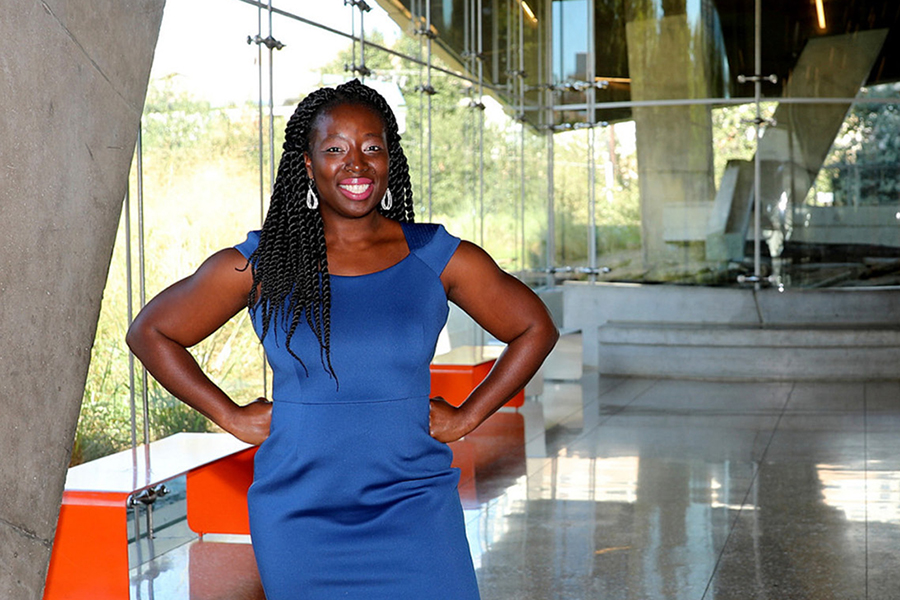Purdue ECE alumna featured in Spring 2023 issue of Purdue Alumnus

Who develops technology, who funds it, and how we put it to use in our communities matters in creating a more equitable world, says public interest technologist Afua Bruce (BSCmpE ’05), who has spent her career working at the intersection of technology and policy.
“As governments become more data driven, we’re applying technological expertise in ways that serve the public good and generate public benefits,” she says.
Bruce is the coauthor of The Tech That Comes Next: How Changemakers, Philanthropists, and Technologists Can Build an Equitable World and the founder and principal consultant at ANB Advisory Group. Her previous appointments include the FBI, the White House Office of Science and Technology Policy, and President Biden’s transition agency review team at the Department of Justice.
Examples of the intersection of technology and policy are all around us. For example, HIPAA—the federal legislation passed in 1996 that required the creation of national standards to protect sensitive patient health information from being disclosed without the patient’s consent or knowledge—came about after research by a Harvard University engineer showed that health data wasn’t anonymous at the time.
Bruce says that as technology continues to expand into everyday life, it’s important to use artificial intelligence ethically and responsibly. Impacts include designing products—such as automatic faucets and exercise trackers—to recognize dark skin tones; creating foster-care systems that get more children into safe and approved homes; and tackling larger societal problems, such as food insecurity, climate change, and criminal justice reform.
“There are many challenges for public-interest tech to address in the future, and we’re only limited by the imaginations of the people who are working on these issues,” Bruce says. “It’s exciting to see the many different ways that we can use technology—with a bit of understanding of policy—to impact people’s lives.”
Source: Equitable and responsible development and use of technology creates a better world
